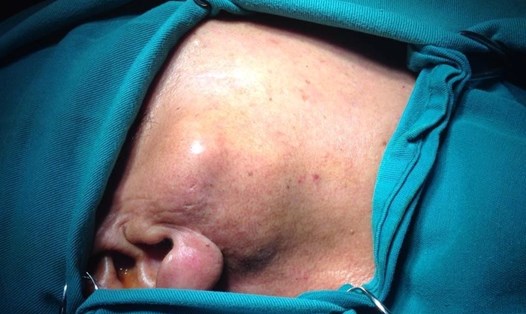According to Dr. Kishkindha, Dentist (BDS), Ludhiana, punjab (India), saliva stones, also known as sialolithiasis, are a medical condition that occurs when minerals such as calcium and phosphorus accumulate in the pipes of the saliva gland, forming stones. This can lead to pain, inflammation, and affect the ability to secrete saliva.
Saliva stones are not only uncomfortable but can also lead to serious problems such as dry mouth, infections and gum disease if not treated promptly.
Causes of saliva stones
Saliva stones can form due to a number of main reasons:
Unreasonable diet: When the diet lacks water and essential nutrients, saliva becomes thick and difficult to flow, creating conditions for minerals such as calcium and phosphorus to accumulate in the saliva tubes.
Dehydration: People who are dehydrated are at high risk of saliva stones. This condition increases the chance of calcium and other minerals converging and accumulating in the saliva.
Autoimmune diseases: Diseases such as rheumatoid arthritis and conjunctivitis can also contribute to the formation of saliva stones.
Symptoms of saliva stones
Common symptoms of saliva stones include:
Pain and inflammation: When stones form, they interfere with the flow of saliva, causing severe pain and inflammation in the saliva area.
Dry mouth: Lack of saliva can cause dry mouth, affecting digestion and causing bad breath.
gum and tooth decay problems: Prolonged dry mouth can lead to problems such as infections, tooth decay and tooth decay.
Diagnosis of saliva stones
To diagnose saliva stones, the doctor will use the technique of injecting optic resistants into the saliva tubes. This method helps observe the movement of the optical barrier when it encounters a rock on the X-ray screen. The appearance of an optical barrier at the location of a stone allows the doctor to accurately determine the location and size of the stone.
Treatment of saliva stones
Dr. Kishkindha says that treating saliva stones depends on the size and location of the stone:
Small stones: If the stones are small in size, doctors or dentalists can treat them by massaging the gland to push the stones away.
Large stones: If the stones are large and cannot be removed easily, surgery is necessary. The doctor will perform a small incision on the saliva line to remove the stone.
Note
Saliva stones are a health problem that can cause pain and affect the quality of life. Early identification and treatment can help reduce symptoms and prevent complications. If you suspect you have saliva stones, consult your doctor or dentist for timely diagnosis and treatment.









